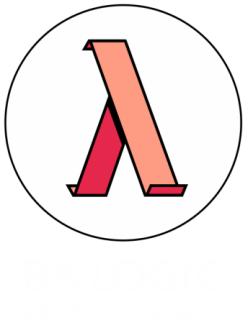November 25, 2022
Argentinean Society
of Philosophical Analysis (SADAF)
Buenos Aires, Argentina
You can join us for this event via Zoom Meetings. Please contact us at ba.logicgroup [at] gmail.com to get the link.
(14:00 – 15:00) Paula Teijeiro (IIF-SADAF-CONICET, UBA): “Implicit rules”.
(15:15 – 16:15) Matias Osta Vélez (Ruhr-Universität Bochum, MCMP): “Defaults rules, expectations, and conceptual spaces”.
(16:15 – 16:45) Cofee break
(16:45 – 17:45) Matteo de Bendetto(Ruhr-Universität Bochum): “Sound and Feasible Reasoning: A multi-factor approach to the normativity of logic”.
(18:00 – 19:00) Alba Massolo (UNC): “Logic, reasoning and normativity”.
In this talk, we will develop a novel perspective on the question of the normativity of logic for everyday reasoning. We will reinterpret this question as a clash between an “intuitive connection” (i.e., that there is a direct, normative connection between logic and reasoning) and a “feasibility problem” (i.e., that it may be beyond one’s cognitive capacities to detect a logical inconsistency or draw a certain logical inference). The feasibility problem appears to challenge the intuitive connection. Within the recent contributions to the debate, the standard response has been to abandon the intuitive connection. Starting from the seminal MacFarlane (2004), the literature has indeed focused on answering the feasibility problem by connecting logic and reasoning via “bridge principles” of increasing complexity. We aim to show that the standard response is unwarranted. We argue that there is a way in which the feasibility problem can be addressed without sacrificing the intuitive connection. The key component of our proposal will be to rethink the question of the normativity of logic within a fine-grained theory of rational agency where logical soundness is only one of the many normative factors that guide our reasoning.
Matias Osta Velez: “Defaults rules, expectations, and conceptual spaces”
Gaerdenfors and Makinson (1994) showed that it is possible to model nonmonotonic inference using a classical consequence relation plus an expectation-based ordering of formulas. A limitation of this proposal is that it does not account for the cognitive origins of expectation orderings. I will show how to overcome this limitation by adopting a conceptual space-based analysis of the role of expectations in reasoning. I will introduce formal criteria for constructing and updating expectations orderings and argue that this settles some significant epistemological issues surrounding default logics.
Alba Massolo: “Logic, reasoning and normativity”
This presentation aims to argue in favour of the normativity role of logic for reasoning. From an externalist perspective, I offer a response to two fronts of attack against the normativity thesis, namely, Harman’s sceptical challenge and the accusation of committing a naturalistic fallacy. On the one hand, I rework dialogical bridge principles and show that these principles can satisfy adequacy criteria to deal with Harman’s challenge. On the other hand, I argue that it is possible to derive normative consequences from logical facts. This is because argumentative interactions among agents involve the acceptance of certain constitutive rules that entail obligations. Hence, as logical rules can be seen as constitutive of the social practice of reasoning, they create prescriptions for reasoning. Bridge principles make those obligations and prohibitions explicit.
We are grateful for the support provided by CONICET
